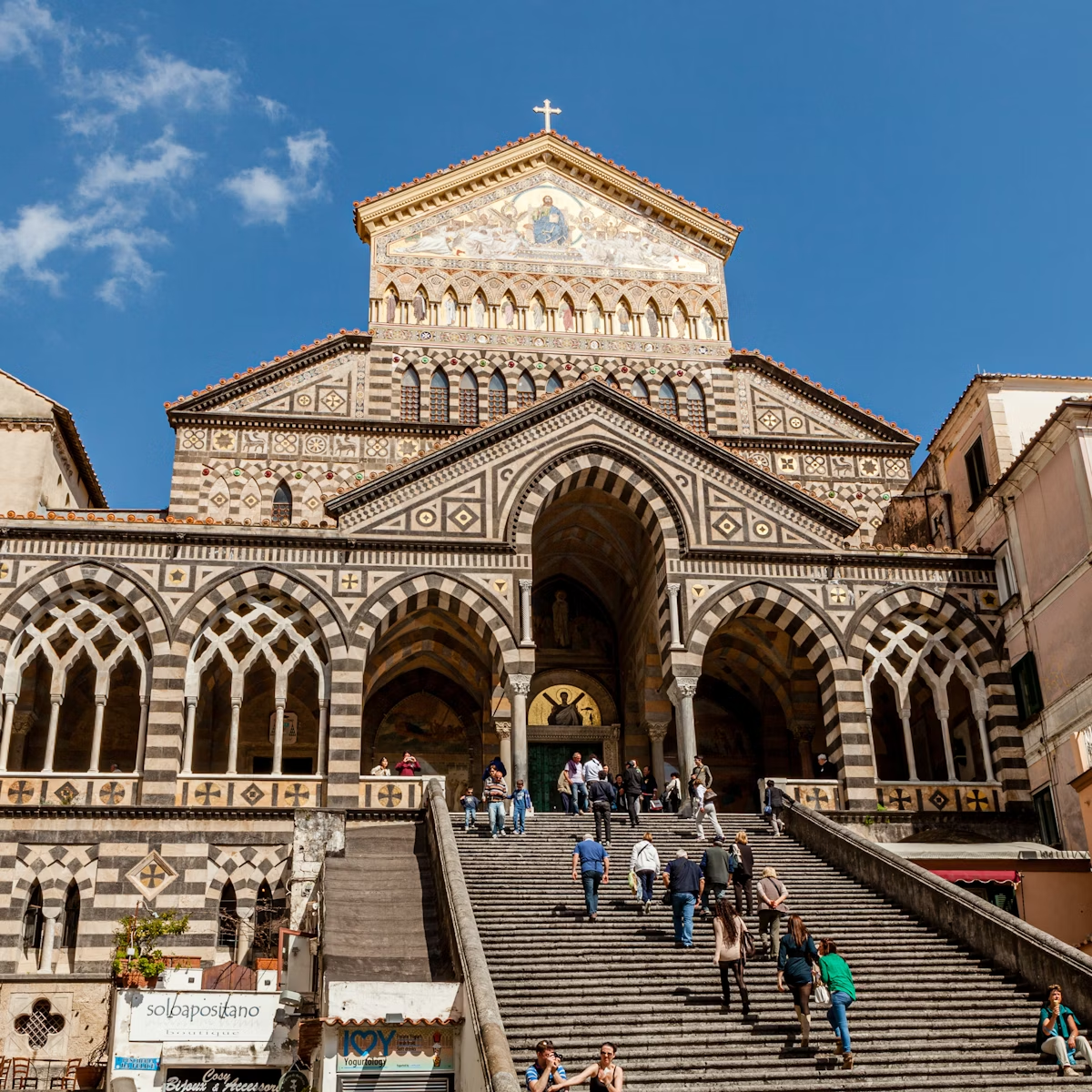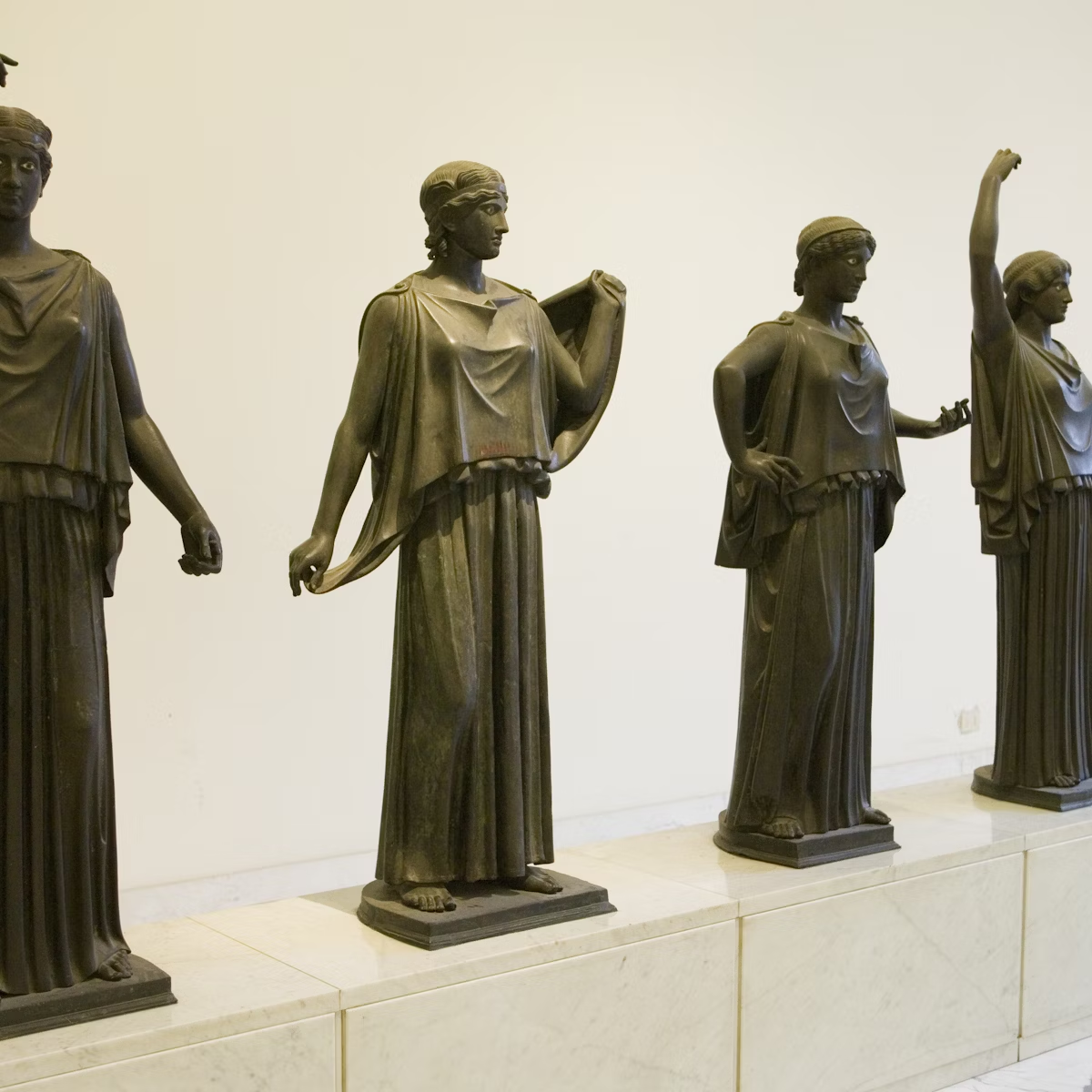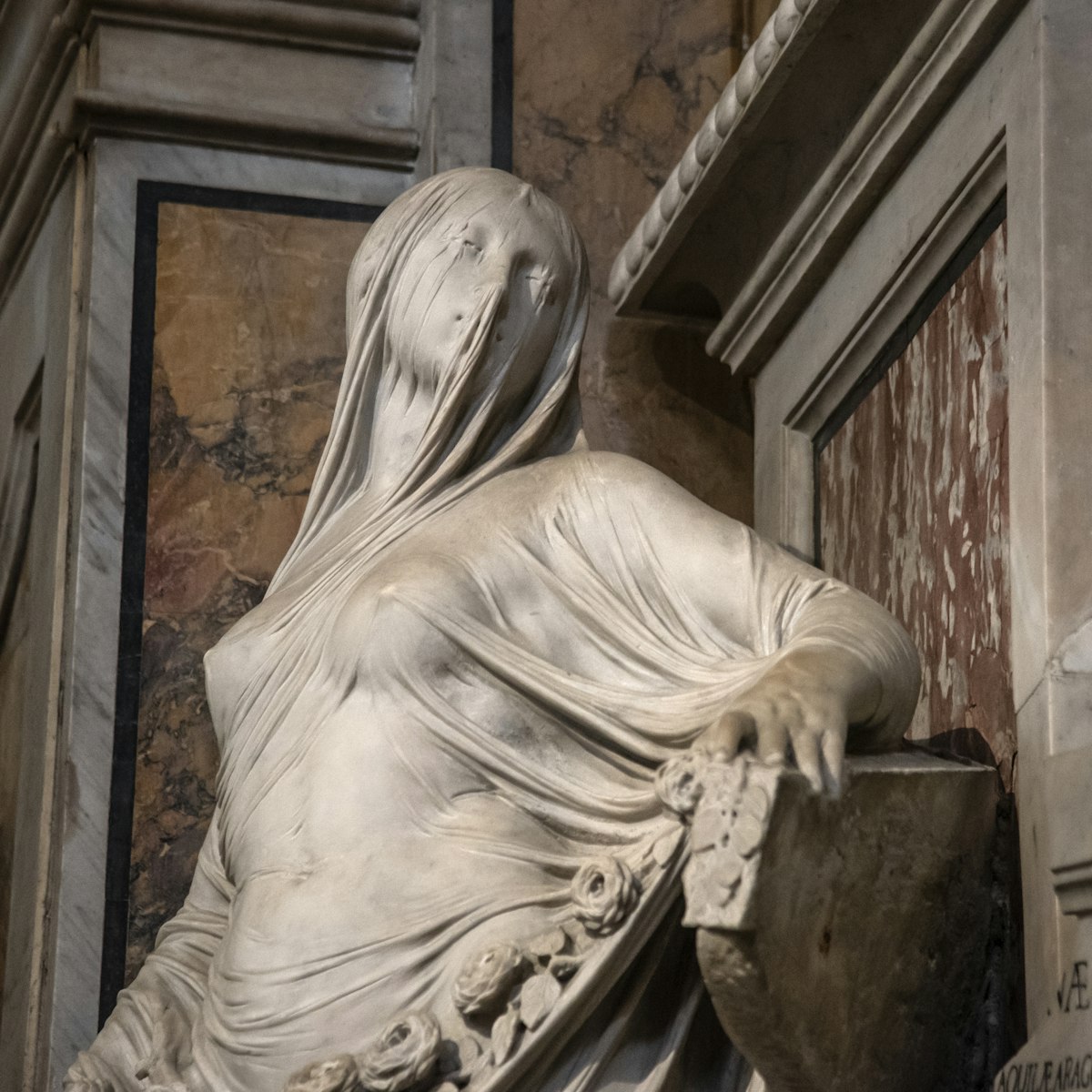Naples' oldest and most sacred catacombs became a Christian pilgrimage site when San Gennaro's body was interred here in the 5th century. The carefully restored site allows visitors to experience an evocative other world of tombs, corridors and broad vestibules, its treasures including 2nd-century Christian frescoes, 5th-century mosaics and the oldest known portrait of San Gennaro, dating from the second half of the 5th century.
The catacombs are home to three types of tomb, each corresponding to a specific social class. The wealthy opted for the open-room cubiculum, originally guarded by gates and adorned with colourful wall frescoes. One cubiculum to the left of the entrance features an especially beautiful funerary fresco of a mother, father and child: it's made up of three layers of fresco, one commissioned for each death. The smaller, rectangular wall niches, known as loculum, were the domain of the middle classes, while the forme (floor tombs) were reserved for the poor.
Further ahead you'll stumble upon the basilica minore (minor basilica), home to the tombs of San Gennaro and 5th-century archbishop of Naples Giovanni I. Sometime between 413 and 431, Giovanni I accompanied the martyr's remains from Pozzuoli to Naples, burying them here before Lombard prince Sico I of Benevento snatched them in the 9th century. The basilica minore also harbours fragments of a fresco depicting Naples' first bishop, Sant'Aspreno. The city's bishops were buried here until the 11th century.
Close to the basilica minore is a 3rd-century tomb whose Pompeiian-hued artwork employs both Christian and pagan elements. In the image of three women building a castle, the figures represent the three virtues, while the castle symbolises the Church.
The lower level is even older, dating back to the 2nd century and speckled with typically pagan motifs like fruit and animals. The painting on the side of San Gennaro's tomb – depicting the saint with Mt Vesuvius and Mt Somma in the background – is the first known image of San Gennaro as the protector of Naples. Also on the lower level is the Basilica di Agrippino, named in honour of Sant'Agrippino. The sixth bishop of Naples, Agrippino was also the first Christian to be buried in the catacombs, back in the 3rd century.
Tours of the catacombs are run by the Cooperativa Sociale Onlus 'La Paranza', whose ticket office is to the left of the Chiesa di Madre di Buon Consiglio, a snack-sized replica of St Peter's in Rome completed in 1960. Tickets can also be purchased in advance online.
The cooperative also runs a fascinating Sunday morning walking tour called Il Miglio Sacro (The Holy Mile; adult/reduced €15/13), which explores the neighbouring Sanità district. The Holy Mile tour must be prebooked and is offered in Italian unless requested in English, French or Spanish in advance; see the website for details.
The catacombs themselves also host occasional special events, including theatrical and live-music performances; see the website.








